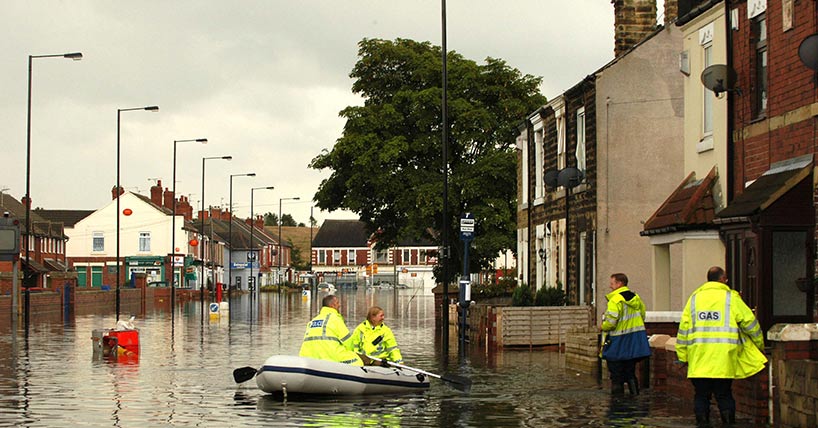Europe winters
Fossil fuels speed up shifts in Europe’s winter rainfall
Published on: 24 November 2025
New study reveals burning of fossil fuels is accelerating winter rainfall changes in the UK and Europe, almost 25 years sooner than expected.
As COP30 negotiations failed to secure new pledges to cut fossil fuels, new research shows that the burning of coal, oil and gas is already driving dangerous increases in winter rainfall across northern Europe—decades ahead of climate model projections.
Professor Hayley Fowler, Professor of Climate Change Impacts at Newcastle University, said:
“What we saw recently in Monmouth is another stark reminder that the UK is already facing severe weather impacts driven by our continued reliance on fossil fuels. Our new study shows that winter rainfall is increasing far more quickly than climate models project—reaching levels now that models don’t detect until the 2040s.
“As fossil fuels were taken out of the COP30 decision text, it is vital that politicians understand the science: the risks are accelerating, and delaying action will put more lives at risk.
“I urge members of the public to contact their MP and ensure they attend the National Emergency Briefing on 27 November in Westminster, where I will be speaking alongside Chris Packham and many of the UK’s leading scientists. We urgently need our politicians to take these escalating weather events seriously. The UK must urgently transition away from fossil fuels and invest in resilience now, not decades from now.”

Burning of fossil fuels has accelerated Europe’s winter rainfall changes by 23 years
A new study published in the journal Environmental Research Letters reveals that warming caused by the burning of fossil fuels has accelerated shifts in Europe’s winter rainfall patterns by more than two decades. Conditions expected in the mid-2040s are already being observed today.
Newcastle University climate experts found that winters in Northern and central Europe—including the UK—are becoming significantly wetter, increasing winter flood risk. In contrast, winters in the Mediterranean are becoming markedly drier, deepening drought and water scarcity. Climate models significantly underestimate both the speed and magnitude of these changes.
The team analysed winter rainfall in Europe between 1950 and 2024 and examined how large-scale atmospheric circulation patterns, including shifts in the North Atlantic jet stream, interact with human-caused warming. Their methods separated the natural variability from the effects of burning fossil fuels.
Even after accounting for natural climate fluctuations, observed changes were much stronger than climate models predict for the same period.
Flood risks underestimated across northern Europe
These trends are contributing to increases in winter flood risk in Northern Europe. Lead author Dr James Carruthers, Newcastle University School of Engineering, said:
“Future winter flood risk, especially in northern Europe, is likely being significantly underestimated. The level of risk we face today is already greater than climate models indicate.”
The findings raise urgent concerns for national adaptation plans, infrastructure investment, and emergency preparedness across Europe which may be underestimating climate risks for the next 20 to 30 years. The authors stress that the UK and Europe must accelerate and strengthen its adaptation planning to protect communities from worsening winter floods, as many systems are planned using these climate model projections. They plan to continue investigating whether similar early intensification is occurring in other seasons.
Why this matters for UK policymakers
- The UK is already experiencing rainfall levels not expected until the mid-2040s.
- Flood defences, drainage systems, and emergency services may be underprepared for current levels of risk.
- Without rapid action, communities will face increasingly severe and frequent flood events, damaging homes, transport networks, and critical services.
- The results come at a pivotal moment, as global climate negotiations stall on the phase-out of fossil fuels.
Reference:
James G Carruthers et al 2025 Environ. Res. Lett. 20 114085DOI 10.1088/1748-9326/ae198b



